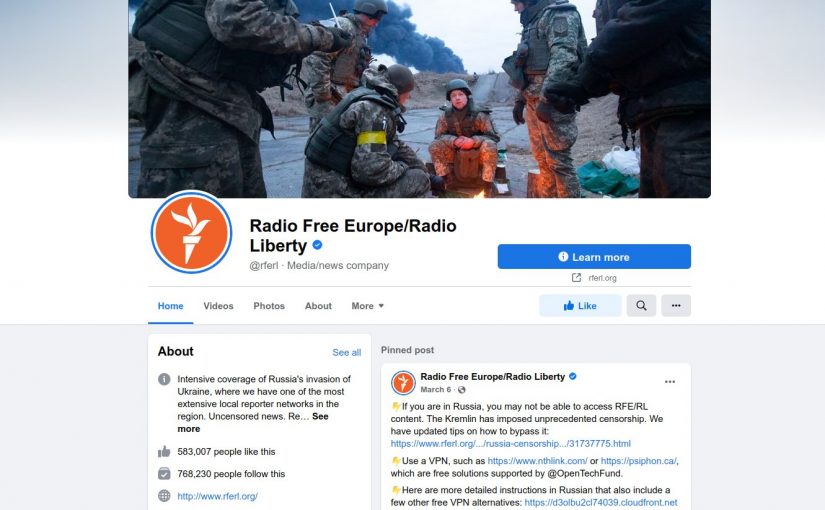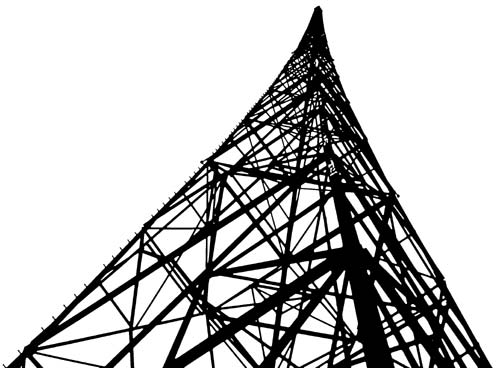I read with interest the Radio World Article: Why reviving Shortwave is a non-starter. The main premise of the article is that reviving Shortwave broadcasting to Russia is just wishful thinking. Since I am still in contact with persons in Russia, I figured I would attempt to ask them what they thought about it (without putting them at risk, of course).
The short answer; the opinion by Daniel Robinson and Keith Perron is correct. Shortwave is a non-starter in Russia. I asked a series of questions of my Russian friends and received the following answers:
Question: Do Russians own AM/FM radios?
Answer: Yes, especially those with cars. Most listening to analog AM or FM radio is done in cars and sometimes at work wearing headphones.
Question: How about Shortwave or Longwave sets?
Answer: Amateur radio operators and some hobbyists may own these radios, but not the general population.
Question: Are there any leftover shortwave sets from Soviet times/the cold war period?
Answer: Not likely, and if there are, they probably don’t work. Soviet equipment was not high quality.
Question: What about listening to the radio at home?
Answer: Not very many people do this. Most people watch TV while at home or stream movies.
Question: Where do most people get their news?
Answer: The state media TV services (Russia-1 or Channel-1). A few people may stream news from overseas, although this is getting harder and harder to do. Anyone who does this will likely use a VPN.
Question: How many people can find, download, install, and configure a VPN?
Answer: Mostly young people will do this, but it is getting harder to find VPN apps. They are getting removed from online sources and people are afraid to install them on their mobile devices in case they have interactions with the police. Approximately 10% might be using a VPN.
Question: Could Russia disconnect the internet completely from the rest of the world?
Answer: Yes, but it would be difficult. The internet in Russia was not designed to do this the same way as say North Korea or the Great Firewall of China. There are many physical connections out of the country and not everything is well documented. It is much more likely that they will block, censor and track users rather than completely disconnect.
Question: Are there any sources of outside information available in Russia right now?
Answer: For those that are searching for it, yes but likely not for much longer.
Question: If Radio Free Europe/Radio Liberty were available on AM/FM or Shortwave, would people listen to it?
Answer: No one cares. Unlike during Soviet times, no one really cares about western news or opinion. Things changed in 2014 with the first set of western sanctions. The cultural ministry (Roskomnadzor) began blocking access to internet sites they deemed detrimental. There were few independent media voices left. With the 2016 US election and anti-Russia investigations, most Russians believe that the west is turned against them. The news, as presented on Russia-1 is believed as true.
As a radio professional, I believe in the medium including HF broadcasting. The point of my Russian friends; even if the programs were directly receivable via radio (of any type), most Russian people would ignore them. It is not a technical matter of getting programming to them. It is more a perception problem, brought on by years of propaganda and negative press from the west. If shortwave had been reinstated in 2007 when the first signs of censorship began to appear in Russia, things might be different. Instead, no one seemed to notice or care.
HF broadcasting, like all radio services, can be effective when nothing else works. Much of the VOA’s HF service is targeted to Africa and Cuba, two places that do not have a high percentage of internet users. It is very expensive to build and operate. To revive HF, it will need to get smaller and less expensive. DRM (Digital Radio Mondial) shows promise in this regard, but there is a dearth of available receivers (a quick search on Amazon nets zero usable results). Instead of trying to burn holes through the ionosphere with giant 500 KW AM modulated transmitters coupled to huge antennas with +20 dB gain or more, smaller digitally modulated transmitters with simpler antennas could net the same or better results. If these systems were placed closer to the intended target audience, so much the better.
Clearly, the world has changed. It is time to re-examine (and perhaps update) some of this old technology for 21st-century use. Whatever happens, there are no short, quick, or easy answers. It took decades of time and a momentous effort to bring western ideas to the communist block. This was all undone in a few years by budget cuts.







I think shortwave still has its place in modern broadcast landscape:
It is a simple, effective and equitable public service. But to survive and compete with other media format successfully,
it need to improve its Quality of Service by technical upgrading, eg. going digital, single frequency network etc.
As to the alternative media outlet: internet broadcasting, It represents everything shortwave radio is not:
it is provided/consumed locally and by this nature, very susceptible to local disturbances, be it natural disaster, power failure, or influence from political ideology.
it is a subscription based service: Not everyone can afford mobile data plan and sometimes even if you can afford the cost, there is simply not a reliable service provider available.
it is static, and trackable. Your activity/ programe preference etc. over the internet are recorded and easied traceable. Big brother/hackers could use that data to ensnare unsuspicious victims.
As to internet censorship/blocking, the author of the article seems to believe VPN is the go-to solution and freely/widely available in every country. As a native Chinese who live and work in mainland China I found that opinion condescending and offensive:”duh, I’m an idiot to miss that option!” VPN providers are not doing its business for free. If the authority want to stem the public use of VPN, all it need to do is simply prosecute those VPN provider if they can seize them physically, or cut them off the revenue stream since almost all of them are based overseas. Not to mention the authority could trace every electronic transaction of the VPN subscriber and put them on the special “watch list”.You think their massive surveillance programe and deployment of AI technology in every social fabric is just for fun? Welcome to the dream land!
Thank you for your article on the revival of shortwave transmission. It sounds like becasue of narrow-minded thinking and budget cuts in the past that train has left the station. With little programming on HF there is no reason to have an HF receiver. Sort of a chicken or egg thing.
Russia is a lost cause. Apparently, over 70 percent of the population is on-board with the war. (I suspect the ones that aren’t are keeping very quiet about it.)
Not long back, in book by an escaped North Korean I read, I learned that foreign shortwave broadcasting is leaking into the ‘Hermit Kingdom’ in a surprising way (to me, at least).
According to the book, if a North Korean acquires a world-band radio on the black market, they are required to take it to a local authority who will glue the dial to a set position to only receive North Koren stations.
The radios are inexpensive ones like the Kaito brand. So, the North Korean customer buys 2 of a certain model and submits one to be ‘frozen’, and hides the other one. Jamming is spotty, according to the author, and countries like South Korea (and a few others) have dedicated shortwave broadcasting to their neighbors to the north.
There’s another way media gets to the North Korean people, USB memory sticks with South Korean TV programming on them. Chinese TV sets have USB ports where flash drives can be plugged in. The way that works is an exchange system where the NK people ‘trade in’ the video sticks they have seen for fresh programming, with a small fee to the Chinese smugglers. Their small size makes hiding them easier.
Also according to the author, even if they do get caught, the police are so corrupt, they can usually be bribed to not see a thing. So, North Korea isn’t as closed off as ‘Comrade’ Kim would like, but the people can’t do a damn thing about it…
zhongfan yang; thank you for the interesting comment. You bring up a good point about the cost of VPN, which is not free.
Raymond; You are correct. If the USAGM had continued HF service after the 2008 South Georgia invasion or resumed it after the 2014 Crimea occupation, then perhaps there would be a little more uptake in Eastern Europe. I believe that HF service can be accomplished for much less than previously cost, especially since most large scale government broadcasters have left the air, China being the exception.
Geoff; My friends say it is closer to 85%, but either way, it is the majority.
If you look at the history of the VOA and RFE/RL, it took a lot of effort, time and expense to become a trusted source of information behind the iron curtain. Early on, the Coast Guard operated a converted cargo ship (USCGC Courier) into an HF relay for the VOA and operated it in the Mediterranean Sea from 1952-1964, when shore based European transmitter sites came on line.
I believe, rather than cut shorwave broadcasting to Europe and North American, it would have been better to replace the high powered AM modulated transmitters with medium powered DRM units. A simple site with a broadbanded RLPA or two, might offer as much or more coverage than a huge site filled with curtain arrays. Unfortunately, the issue with DRM is the lack of commercially available receivers.
I wonder if anyone is relying heavily on Tor there? Unlike a VPN, it is free, and it’s much harder to block… Some browsers, (like Brave) have it built-in even.